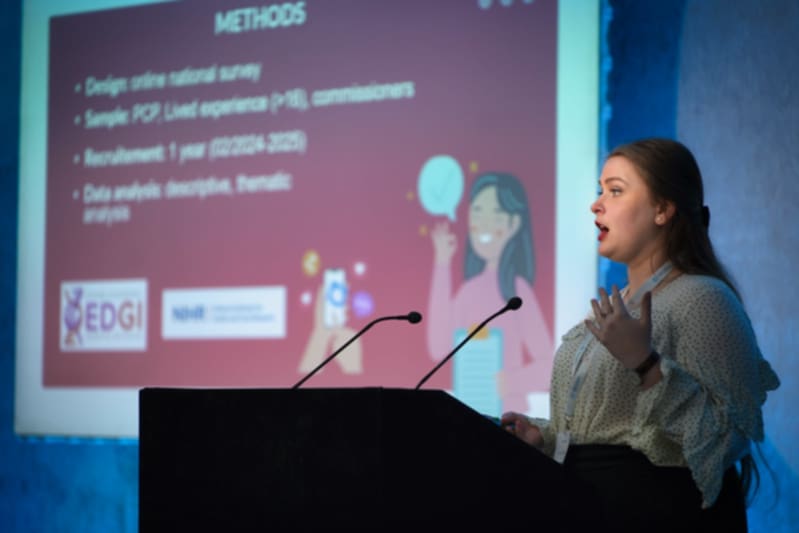Exeter Collaboration for Academic Primary Care (APEx) Blog
Exeter Collaboration for Academic Primary Care (APEx) Blog
Posted by ma403
7 May 2025I had the opportunity to attend the 17th International London Eating Disorder Conference in March 2025. The event brought together clinicians, researchers, and lived experience voices from around the world, all focused on advancing knowledge, treatment approaches, and compassionate care in the field of eating disorders. Held at the heart of London, the conference was both intellectually stimulating and emotionally resonant—a truly multifaceted experience.
Over two days, the conference featured keynote lectures, interactive short talks, poster sessions, and workshops exploring the latest research and therapeutic innovations. A major theme of this year’s event was addressing societal changes and their impact on eating disorders
One of the most thought-provoking sessions I attended was led by Dr. Idrees Mughal (also known as TikTok’s Dr. Idz), who discussed nutritional disinformation in the digital age era. He pointed out the dangers of social media influencers’ ”medical advice” via interactive analysis of TikTok videos. This misleading advice can encourage disordered eating, dismantle trust between patients and their GPS and increase the workload on primary care professionals, which is seen day-to-day in primary care practices. Dr. Mughal initiated an interesting discussion about what we could do as researchers and clinicians, and the conclusion was the famous- ‘Time for school!’
A standout workshop explored K-EET, the Dutch network approach to improve care for people with eating disorders. Researchers presented the development and current state of K-EET, which brings together eating disorder specialists across the country and tries to bridge the gap between primary and secondary care using a coordinated and systemic approach. This workshop highlighted several issues within the Netherlands, which I identified during my PhD in the UK. However, they also offered some implemented solutions which gave a lot to reflect on in relation to my own work.
Equally compelling were the lived experience presentations, which brought real-world insight into the patient journey through recovery. Hearing from individuals who had navigated years of illness and healing gave context to the data we often view in abstraction. It was a powerful reminder that behind every study are real people and real lives.
As a researcher still early in my career, I found the conference inspiring. I had the chance to speak with international experts, gain feedback on my own emerging work, and learn more about different methodologies and about other health systems from the Netherlands and Australia. The conference reinforced the importance of blending scientific rigour with empathy, and I left London feeling more motivated than ever to contribute meaningfully to the field of primary care and eating disorder research.
